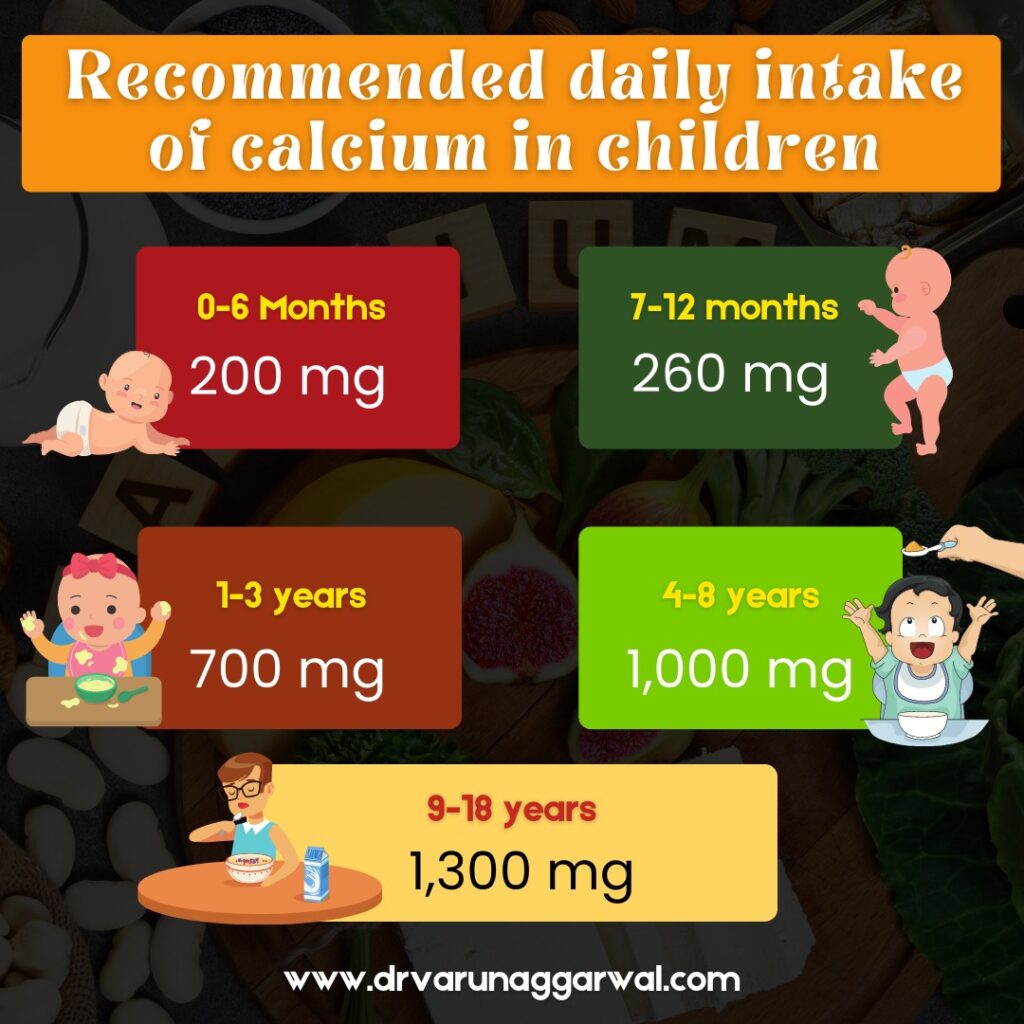Parenting isn’t easy! As a parent, you should be aware of the common health issues of children. It can save your child from getting major diseases in their lifespan. Today, I am going to tell you about one such health issue with children that can lead to serious health problems in the future. We will discuss the deficiency of Calcium(hypocalcemia) in children.
Calcium is a very crucial mineral. Our body uses it to build strong bones and teeth. It is also necessary for the proper functioning of the heart and other muscles. Lack of calcium increases the likelihood of developing conditions, like osteoporosis, rickets,etc.
Lack of calcium may also prevent children from reaching their full potential growth as adults. Now let’s see some of the common symptoms of calcium deficiency in children through which you can check whether your child has calcium deficiency.
Some of the common symptoms of the deficiency of calcium in children include:
- Slow growth or seem weak
- Dry skin
- Dry hair
- Fussy
- Vomiting
- jitteriness
- Brittle nails
- Muscle cramps
- Tingling in the fingers and toes
- Sluggish
- have seizures
- Weakened tooth enamel

What Causes The Deficiency Of Calcium in Children?
In Babies
Insufficient calcium in the baby’s food can cause the calcium level to drop too low. This may occur if a baby is given homemade or watered-down formula. Babies under the age of one who consumes cow’s milk, goat’s milk, or other forms of milk may also experience this. The safest foods for infants are breast milk and infant formula purchased from a store. They include the ideal levels of calcium and other essential minerals for infants.
Another reason for the low calcium in children is the insufficient intake of Vitamin D. Vitamin D helps the body absorb calcium so a low intake of vitamin D can lead to a deficiency of calcium. It is necessary to supplement vitamin D for babies who are fed only breast milk.
The low levels of a hormone (a chemical in the body) that controls the amount of calcium in the blood can also lead to a deficiency of calcium in children.
Rarely, babies may also experience neonatal hypocalcemia, a condition where the balance of calcium is off. Babies get hypocalcemia more frequently than older children do. Babies who were born prematurely or very small, underwent a difficult delivery, or have mothers with diabetes are most at risk.
In Older Childrens
This deficiency of calcium in older childrens may be due to a variety of factors, including:
- Poor calcium intake.
- Taking medications that may reduce calcium absorption.
- Genetic factors.
- Low interest in calcium rich foods.
What Can You Do?
It is not possible to prevent all causes of hypocalcemia. However, providing the right nutrition to your children can give them a healthy start in life.
Infant formula purchased at the supermarket and breast milk both have the ideal ratio of vitamins and minerals. The ideal approach to feeding your infant should be discussed with your paediatrician if you have any concerns.
Below is the table of recommended daily intake of calcium in children-
| Age group | Daily recommended intake of calcium |
| Children, 0-6 months | 200 mg |
| Children, 7-12 months | 260 mg |
| Children, 1-3 years | 700 mg |
| Children, 4-8 years | 1,000 mg |
| Children, 9-18 years | 1,300 mg |
Click here to contact for more information


